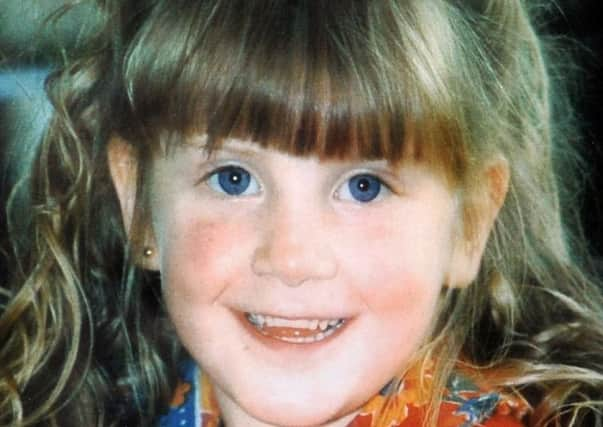Hyponatraemia report: Litany of health care failings contributed to death of Raychel Ferguson


IHRD chair, Mr. John O'Hara, has today concluded that there were a series of shortcomings in the care Raychel received after she was taken Altnagelvin on June 7, 2001, and that these failings allowed for "clinical error and increased the risk of catastrophic outcome".
Raychel died of hyponatraemia - a disturbance caused by a shortage of sodium in the body - in the Royal Victoria Hospital on June 10, 2001, two days after being admitted to Altnagelvin.
Advertisement
Hide AdAdvertisement
Hide AdShe died after being given a weaker concentration of sodium solution than that initially prescribed to address dehydration in the wake of her operation.
In his final report, which was published this afternoon, Mr. O'Hara addressed several failings in the care Raychel received.
He also concluded that there had been an "obdurate reluctance amongst clinicians to openly acknowledge specific failings in Raychel’s care" and described this as "wholly reprehensible".
In light of these conclusions he has recommended that, in future, a "statutory duty of candour should be enacted in the North to encourage healthcare organisations are open and honest in their dealings with patients and the public".
Advertisement
Hide AdAdvertisement
Hide AdAmong his finding were a "lack of functioning controls and the unstructured responses to Raychel’s death".
He found "clinical governance controls were weak" and that "this was well demonstrated by the repeated failure to remedy deficiencies identified in
bench-marking exercises, to implement external guidance or even adhere to internal protocols".
Mr. O'Hara concluded that "quality assurance had decidedly not been achieved at Altnagelvin" and "that was significant because such controls reveal frailties in a system before they can be revealed by tragedy".
Advertisement
Hide AdAdvertisement
Hide AdHe reported that "lax leadership and management problems characterised Altnagelvin’s paediatric surgical service from the ward up".
There was also "multidisciplinary mismanagement of Raychel’s fluid therapy".
He found "shortcomings in clinical governance, leadership and consultant engagement permitted significant clinical vulnerabilities to develop".
"Cumulatively this allowed clinical error and increased the risk of catastrophic outcome. It is for these reasons that I do not believe that any
Advertisement
Hide AdAdvertisement
Hide Adsingle individual can be blamed for the tragedy of Raychel’s death but rather that the responsibility for what happened is collective," stated Mr. O'Hara.
Compounding these shortcomings was "an obdurate reluctance amongst clinicians to openly acknowledge specific failings in Raychel’s care, whether to her family, the Coroner or the public".
"That was wholly reprehensible. The inclination of clinicians to avoid criticism in this way conflicts with patient interest and must not be tolerated in the Health Service.
"The proper approach should of course, and at all times have been, that which was suggested to Altnagelvin at the outset of its engagement with
Advertisement
Hide AdAdvertisement
Hide Adclinical governance, namely that “the actions of the organisation must be transparent and if negligence is identified during the investigation, this
should not be hidden as it will serve no purpose and undoubtedly these facts will come to light during the legal process," said Mr. O'Hara.
The full report is available here: http://www.ihrdni.org/inquiry-report.htm